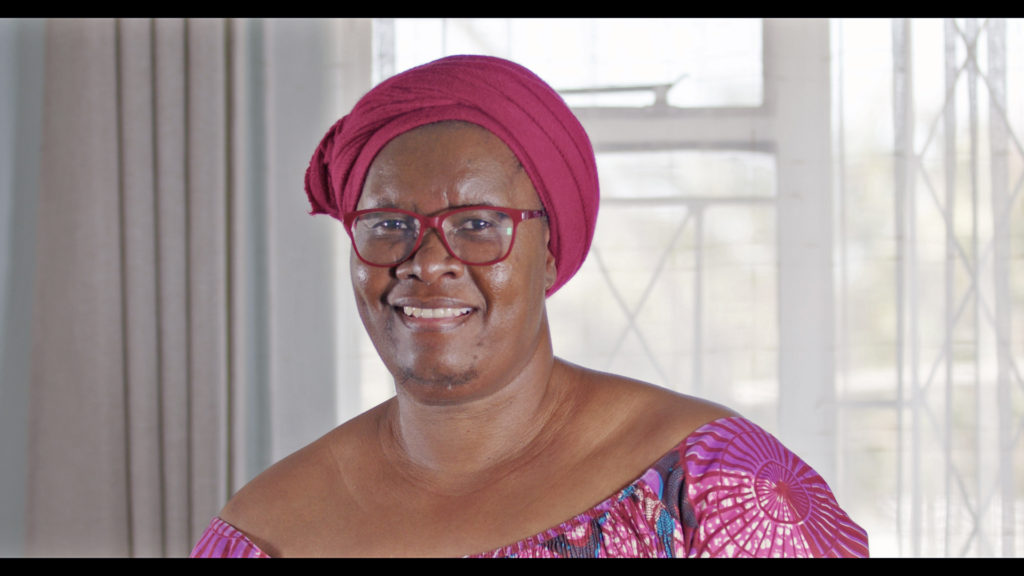
Dr Nyaradzayi Gumbonzvanda’s colleagues in the development world received with shock her decision to quit her job and return to Zimbabwe.
It was in 2005, after a decade of serving as the Secretary General of the Young Women Christian Network Association with a presence in 120 countries and a 25 million strong membership.
On most minds was the question, how could a person operating at the apex of one of the biggest organisations in the world decide to leave everything and relocate to Mrehwa?
Mrehwa is a growing rural area in Zimbabwe’s Mashonaland East Province, about 80 kilometres from Harare’s capital.
Her return, she says, was informed by a deeply rooted personal conviction.
“In 1967, my mother was already a grandmother when she had me. I was her 14th and last pregnancy; she did not choose my father. She was taken out of school and forced into marriage,” Dr Gumbonzvanda says.
Her father died when she was in primary school, and her mother had to step up to finance her education with the support of her elderly siblings.
After her mother’s death in 2006, she decided to retreat and work from her mother’s kitchen.
“In 2006, my mother passed away, and I thought the singular way I can remember and memorise our mothers, but not only my mother Rosaria but the unsung heroines to lift Rosaria Memorial Trust.
I had served the world and realised that the story which is told is that of people of money and big positions but never of women in rural areas, the heroines who carried 14 pregnancies and did a lot more,” she says.
Since then, her goal has been very simple – to ensure no other African woman goes through what her mother went through.
The recent hosting of Women Deliver Conference in Kigali Rwanda affirmed her that indigenous African feminism is now becoming part of the global conversation.
“This was my third women-deliver to attend in person. I attended one in Coppenhagen, the other one in Asia and this one in Kigali Rwanda.
This was the first time we had the Conference in Africa. It made me feel proud that Africa was able to host that Africa was able to host and also to bring its own experiences into a global conference like this,” Dr Gumbonzvanda says.
To her, the event was an exhibition of African capability in being equal partners in the global gender debate, a break from the past where anything global would be hosted in New York or Geneva.
For Dr Gumbonzvanda her proudest moment at the event was seeing the Nhanga Concept, was conceptualised by the Rosaria Memorial Trust being used at Women Deliver.
The Nhanga is a feminist and intergenerational space for advocacy, leadership, mentorship, and skills building.
In the Shona culture, Nhanga is the name of the room where girls sleep, and at Rozaria Memorial Trust, they have built a room where girls and women can converse about anything.
The model has been replicated at different centres across the continent and has been used as a concept at conference, as was the case at Women Deliver where Plan International held one of its conversations in a Nhanga.
“Sitting in the Nhanga, hearing conversations around the Global Plan on Education affirmed us that we are doing something right and we felt that the recognition of the methodology we established can be replicated,” she said.
Key voices in global education sat in a space designed using a traditional hut reserved for women discussing how to improve access to education for women and girls.
Amnesty International has also adopted the Nhanga model and has been using it to
She reflects on days when she yearned for African solutions to African problems while working in large development organisation.
“The years that I served at the global level; I would always hit a wall where everybody wanted to bring innovation to Africa around safe spaces for ladies.
In the UN I was a Regional Director for UNIFEM (now UN Women), my mind refused to accept that the work we do is Western, I would sit there and feel that all these concepts were jargon simply describing what we already have at home,” she says.
Dr Gumbonzvanda says next step is patenting the Nhanga Model, not to limit access, but to ensure that its ethos is adhered to.
Some of its ethos include the indigenous setting, where there should not be any modern furniture and accessories, it should be women-led, it is a non-judgmental space and conversations are allowed to run freely.
“We are looking at making it a Public Patent. We need to protect it but make it a public good but also to protect its ethos. We need to protect its critical elements on what makes a Nhanga what it is,” she says.
Although Women Deliver was largely a success, Dr Gumbonzvanda feels there are some elements which could have been executed better.
“In terms of content, we know that gender issues are universal, they be, violence against women, maternal health, child marriages but Africa is affected much more deeply compared to the other regions. My feeling was that the conversation did not reflect that aspect fully,” she says.
However, she lauded the political will showed by the African leadership at the event, with leaders from Rwanda, Ethiopia and other countries participating in conversations which saw them affirming their commitment to working to improve the lives of women on the continent.
“One of the key outcomes was around mobilisation, centering a discussion around gender equality and women’s rights,” says Dr Gumbonzvanda.
Seeing Africans organisations and key voices congregating to lead an array of conversations on issues affecting women on the continent on a daily basis, reignited a long-held yearning in Dr Gumbonzvanda’s mind, which is part of why she decided to follow her path home to design an institution specifically set to help African women realise their full rights.
Dr Gumbonzvanda, who served as the Africa Union Goodwill Ambassador on Ending Child Marriages from 2015 until 2022 is a strong proponent of building sustainable African institutions instead of always waiting for globalised organisations.
“You cannot use the master’s tools to dismantle the master’s house. We need African institutions to be self-resourced solidly. As a continent, we need our own philanthropy,” she argues.
She views externally defined philanthropy as a stumbling block towards building sustainable African institutions which live beyond donor funding cycles.
“It was very evident for me at Women Deliver that we need to grow our own institutions, we need to significantly resource our works and move away from the Africa is poor narrative,” says Dr Gumbonzvanda.
The hosting of Women Deliver in Africa and the use of her Nhanga concept in one of the conversations vindicated her decision 18 years ago, when she retreated home to turn her mother’s homestead into a fortress for young girls.
Today, that space has become a model centre for young girls seeking to understand the world better, those escaping from abuse and those passionate about changing the world.
To Dr Gumbonzvanda, this marks a part fulfilment of a lifelong dream, of seeing African women leading the search for solutions to problems faced by African women.


